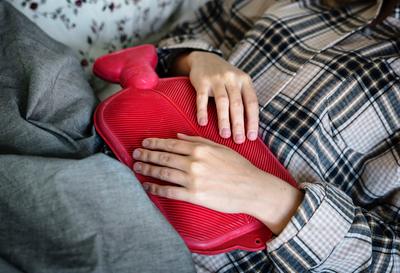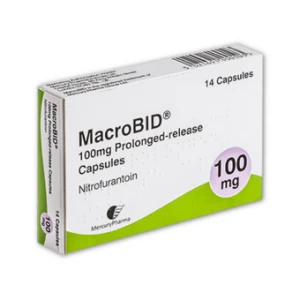 Cystitis is a common yet uncomfortable urinary tract infection (UTI). It is caused by bacteria, such as E. coli, travelling into the urethra and up into the bladder, where they cause irritation and inflammation.
Cystitis is a common yet uncomfortable urinary tract infection (UTI). It is caused by bacteria, such as E. coli, travelling into the urethra and up into the bladder, where they cause irritation and inflammation.
Because it’s challenging to prevent cystitis, most women will likely get it at least once in their lives. For some women, cystitis can keep coming back. If you experience cystitis frequently, you should consult your doctor to determine the cause of its recurrence.
UTIs are generally not serious and can be easily treated with a short course of antibiotics. You can also take over-the-counter pain relief, such as paracetamol, to manage the pain.
Along with the infection comes a host of unpleasant and sometimes painful symptoms that can make it challenging to fall asleep.
Symptoms of Cystitis
The symptoms of cystitis include:
- a persistent urge to urinate (even when the bladder is empty)
- burning while urinating
- cloudy and smelly urine
- lower abdominal pain
These symptoms can feel doubly frustrating at night when trying to sleep. The constant need to urinate can have sufferers up and down during the night, while the persistent pain in the urethra can also make it difficult to drift off and stay asleep, as it is hard to ignore.
It can also cause you to feel generally unwell, similar to a cold or the flu. Feeling tired and drained is not uncommon as your body fights a UTI.
It’s essential to get a good night's sleep to give your body the best chance of fighting the infection. Fortunately, there are several steps you can take to alleviate your symptoms and ensure a more restful night.
Whilst annoying and often sore, there are a few things you can try to manage the condition enough to assist with a decent night’s sleep.
Easing Cystitis at Night
There are several steps you can take to alleviate your cystitis pain and expedite your recovery.
Diet
You should avoid fizzy drinks while you have a UTI. Fizzy drinks can irritate the bladder further. Instead, drink plenty of fresh water to help flush out the infection.
Try to consume more liquids earlier in the day so your bladder is less full before bed.
Avoid caffeine & alcohol. Caffeine is a diuretic, meaning it increases the frequency of urination. Caffeine can also irritate the bladder lining, so try to avoid products that contain caffeine, such as tea, coffee, chocolate, and fizzy drinks. Alcohol is also a bladder irritant, so it is advisable not to drink while recovering.
It is believed that citrus fruits, such as lemons and oranges, may exacerbate pain when urinating due to their high acidity. Whilst this has not been proven, it may be a good idea to avoid acidic drinks until you feel better.
Bedtime Routine
Try sleeping in a position that helps to relax the pelvic muscles. Lying on your side and pulling your legs up into a fetal position, or spreading your legs apart if you sleep on your back, should be more comfortable.
Put a hot water bottle on your abdomen or between your legs for 30 minutes before bed. If you choose to sleep with a hot compress, make sure it is one that cools over time.
In general, sex should be avoided entirely while you have cystitis. If you do have sex, remember to urinate immediately afterwards to flush out any bacteria which may be moved up your urethra and into your bladder.
Wear loose pyjamas that are not tight around the genital area. Soft, breathable fabrics like cotton can prevent irritation and let the area breathe without trapping moisture. A nightie or very loose bottoms, like pyjamas with no waistband, will prevent unwanted pressure on the bladder.
Try gentle exercises, such as walking or light yoga. These can release natural pain-neutralising chemicals in the brain called endorphins. Be cautious, as vigorous exercise can exacerbate your symptoms and have a negative impact on your sleep pattern.
If you need some immediate relief, a hot shower can help soothe the urethra. Be sure to avoid scented or perfumed beauty products, as these can cause irritation and may worsen your symptoms. Instead, use a plain and gentle soap to wash.
If you smoke, avoid smoking before bed. Cigarettes contain chemicals which could be upsetting your bladder further.
Medicine
Aside from self-help, some medications can help you manage your symptoms and alleviate cystitis.
Take pain relief medication half an hour to an hour before bed. Anti-inflammatory medicines, such as ibuprofen, will not only decrease your pain but also reduce the inflammation of your bladder.
Still, suffering? If your symptoms haven’t gone away on their own within 3 days, you may need to see a doctor for antibiotics, such as trimethoprim or nitrofurantoin, to rid yourself of the infection completely.
Nitrofurantoin (Macrobid) UTI Antibiotics
- Kills bacteria
- Short course treatment
- Eligible for next-day delivery
Prevention
You can make appropriate adjustments to your lifestyle to prevent cystitis from recurring.
Urinating as soon as you can after sex, drinking plenty of water, and keeping your genitals clean and dry can help prevent cystitis from coming back.
If you continue to experience cystitis, consult your doctor. They may be able to prescribe a low-dose antibiotic to be taken over the course of several months to prevent cystitis from recurring.
Sources
NHS, 2018. Cystitis: Treatments
British Association of Urological Surgeons (BAUS), 2020. Self-help information for women with recurrent cystitis








